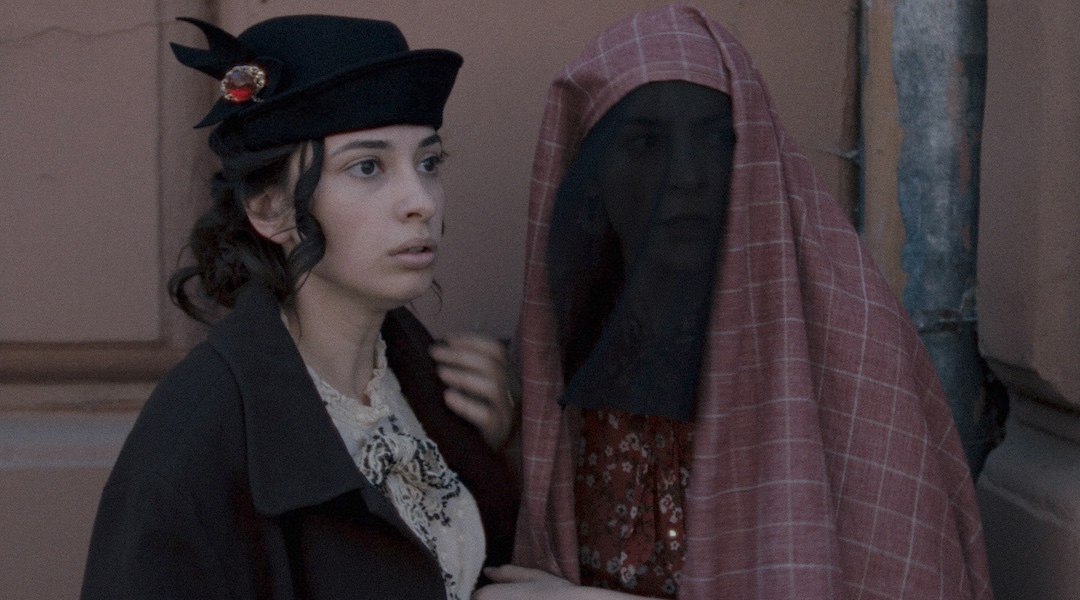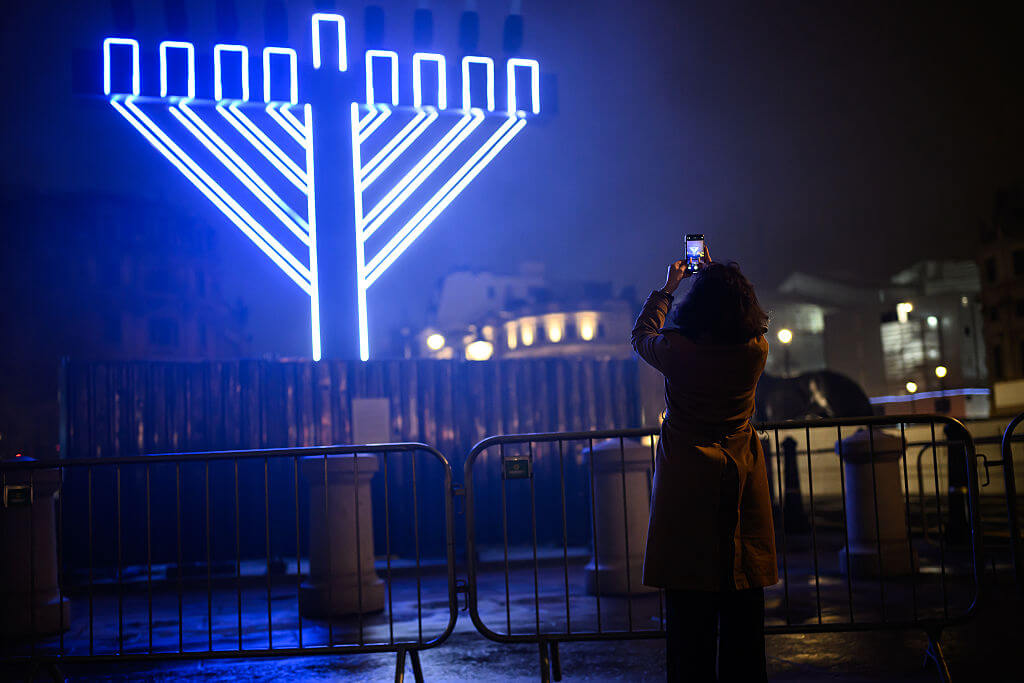How A Respected Jewish Educator Preyed On Children For A Half-Century

Image by Anya ulinich
By his own admission, Stanley S. Rosenfeld, a Jewish educator who worked primarily in New York City and Rhode Island, sexually abused “hundreds” of children — nearly all middle school-aged boys — during his five-decade career. From a beloved summer camp in New Jersey, to elite Orthodox schools in New York, to a small Conservative synagogue in Rhode Island, Rosenfeld assaulted and molested children with near impunity, charged with a crime exactly once.
Nearly all the people who knew him, including his victims, described him as friendly, pleasant and a good teacher. But his acts of sexual violence — ranging from genital groping to performing nonconsensual fellatio — marred the childhoods of people now between 30 and 76 years old.
The Jewish institutions that employed him are still reckoning with the aftermath.
So is Rosenfeld.
The Forward first published an article about Rosenfeld in July. At the time, it was not known whether he was still alive. The next day, this reporter located Rosenfeld living in a nursing home in Providence, Rhode Island. He is 84 years old.
In a phone interview, Rosenfeld admitted that he molested children, but had difficulty recalling specific instances or indeed large portions of his life. He denied having received a diagnosis of either dementia or Alzheimer’s disease. A relative of Rosenfeld, contacted on the Forward’s behalf by the administrator of his nursing home, did not respond to a request for comment.
“I would imagine that some of the kids did talk about it,” he said. “Some of them to their parents, some of them to other teachers, some to principals. But it somehow never became public.”
In investigating Rosenfeld’s case, the Forward examined legal documents, police records, public records and privately held historical archives, as well as yearbooks, photographs and other documents provided by Rosenfeld’s victims. The results of this investigation show that Rosenfeld:
-
Worked at five private Jewish schools in New York, including the now-closed Hebrew Institute of Boro Park, also known as Yeshivat Etz Chaim (mid-1960s); Westchester Day School in Mamaroneck (late 1960s-1972); the Ramaz School in Manhattan (1972-1973); SAR Academy in the Bronx (the mid-1970s and mid-1980s). The identity of the fifth school is not known.
-
Resigned from Camp Cejwin, a now-closed Jewish summer camp after performing oral sex on a 14-year-old camper in 1956.
-
Was arrested for groping a 12-year-old boy he was tutoring for his bar mitzvah in Rhode Island in 2000, and convicted of child molestation in 2001.
-
Served a year and a half in prison after violating his probation in 2002.
A 2009 probation report that included Rosenfeld’s criminal history, obtained by the Forward, states that he said he “was never investigated but was asked to leave four of the schools due to allegations of molestation.” In 2001, when a probation officer asked Rosenfeld about his teaching history in New York, Rosenfeld said that “there have been other incidents, but I was never charged.” Rosenfeld estimated his own number of victims in the “three figures” in a 2001 conversation with the probation officer.
WDS, Ramaz and SAR have hired investigators to look into Rosenfeld’s tenures at the schools. Rosenfeld’s history of molestation first came to light after SAR received an allegation of misconduct against him by a former student. It notified its community about Rosenfeld in January; WDS and Ramaz did so then as well.
In August, I went to Rhode Island to meet with Rosenfeld. His former nursing home had closed, and he had moved into a recently renovated rehabilitation center. That day, however, Rosenfeld was in Rhode Island Hospital recovering from a fall. He agreed to be interviewed despite not remembering our initial phone call. Though we were interrupted several times by hospital staff, Rosenfeld seemed to know why we were speaking and what we were speaking about, requiring only limited prompting to pick up where he left off.
At the beginning of our conversation, I told Rosenfeld I was a reporter for the Forward.
“The Forverts,” Rosenfeld replied, referring to the Yiddish name of the paper and adding that his father was a regular reader.
During the interview, Rosenfeld again admitted his guilt in molesting numerous children, and expressed his profound regret that he had hurt so many people.
I asked Rosenfeld if he was sorry.
“It’s that feeling, of knowing what you’re doing is wrong, but it gives you pleasure,” he replied.
***
Rosenfeld was born in Brooklyn in 1933 to Yiddish-speaking Hungarian immigrants and raised in the historically Jewish enclave of Boro Park. He recalled having strained relationships with his father and brother, and being close with his mother and sister. He said he attended Etz Chaim as a student before going to Brooklyn College to receive a degree in education.
Rosenfeld began molesting children while a counselor at summer camp, according to the 2009 probation report and Rosenfeld’s recollections. The probation report states that Rosenfeld watched the children undress and touched them while they were sleeping — a tactic he would employ decades later as a teacher in New York City.
In 2001, Rosenfeld told his probation officer that his “preferred prey” is adolescent boys. Rosenfeld told the Forward that despite identifying as gay, he rarely pursued sexual relationships with men his age. He said preferred boys older than 10 but younger than 15, “kids who were just beginning to mature.” Rosenfeld told the probation officer that he “constantly” had to “fight” his desire for teenage boys.
Although Rosenfeld told the Forward that he knew what he was doing was wrong at the time, his probation officer’s notes from her meetings with Rosenfeld suggest a profound misunderstanding of the sexual agency of children, or lack thereof. At one point, he asked the officer what he should do if a child “came onto him,” the 2001 probation report states. Speaking to police investigators in 2000, Rosenfeld said of one child, “I felt free to touch [redacted] anywhere because we have become good friends.”
“I was a homosexual,” Rosenfeld told the Forward in July. “And my choice of victim was a teenager.”
Rosenfeld told the Forward in that July phone call, unprompted, that he had molested children at Cejwin, a large, popular summer camp in New Jersey, founded and run by the Schoolman family. It catered to Jewish families of different religious backgrounds, and drew campers primarily from the Tri-State Area — over 1,200 a year, at its peak. It was organized into several sub-camps by age, themselves each separated by gender. It closed in 1992. Rosenfeld said he worked there for three or four summers.
The Forward found a Cejwin yearbook from 1956 in the archives of the Center for Jewish History, which indicated that Rosenfeld, then 22, was the “division head” of the older age group’s sub-camp, called Deb-Herzl.
Two former cabin counselors reached by the Forward, now in their eighties, could not recall Rosenfeld resigning or any sexual misconduct committed by him, though they confirmed that he worked at the camp. The Forward spoke to eight male Deb-Herzl ‘56 campers, seven of whom said they knew of no sexual misconduct committed by Rosenfeld.
One former camper, Alan Leicht, said he “vividly” recalled one of the counselors making a pass at one of the other campers in either 1955 or 1956. Leicht, 76, recalled that the counselor was older, and not a cabin counselor.
“He approached him and the kid said, ‘Get away from me you homo,’” Leicht recalled. “And the guy, whoever it was, made a joke of it.”
Leicht added, “I remember [the counselor’s] response was, ‘Oh, a new word you learned.’ In a kind of a yiddishin version.”
***
In July the Forward reported that Rosenfeld taught successively at three elite Jewish schools in New York City area in the 1960s, ‘70s and ‘80s. Each of those three schools — Westchester Day School, SAR Academy and the Ramaz School — notified their communities in January emails about Rosenfeld’s time at the schools. SAR and WDS both reported receiving allegations of sexual misconduct by Rosenfeld by former students, though neither specified that the misconduct had occurred while Rosenfeld was employed by the schools. Ramaz wrote that “no one has come forward with any accusations relating to Mr. Rosenfeld’s time at the school.”
All three schools have hired third-party investigators to look into Rosenfeld’s time at the schools. SAR and Ramaz announced the investigations in January, and have told the Forward they expect to complete them before the end of the summer. WDS announced its investigation in July.
Based on interviews with former students, the Forward has determined that the WDS administration was likely aware of Rosenfeld’s misconduct in 1972, and that he may have left the school because of it.
***
After receiving his teaching degree, Rosenfeld taught in the New York City public schools for 13 years, according to a summary of an interview with police detectives in 2000 obtained by the Forward. He told the detectives that he left the public schools after suffering a nervous breakdown. Rosenfeld then taught English in Yeshivat Etz Chaim’s middle school for at least one year, leaving in 1968, according to a former student at the school.
That year, Rosenfeld left his mother’s home in Boro Park and moved to an apartment in the Riverdale section of the Bronx, on Broadway across the street from Van Cortlandt Park. WDS has said that Rosenfeld began working at the school in the late 1960s. Rosenfeld told the Forward that he was first a teacher there before becoming an assistant principal. The school’s headmaster at the time was S. Maurice Plotnick.
While living in Riverdale, Rosenfeld ingratiated himself with the local Modern Orthodox community. He davened at a shtiebel, or small synagogue, near his apartment, according to former students. He was the frequent Friday night guest of Jewish families in the neighborhood. At WDS, he was regarded by students as a friendly face and by parents as a trustworthy educator and role model. He greeted students in the hallway and offered guidance counseling; parents let their children go with Rosenfeld to Mets’ games, to the bowling alley, to the swimming pool.
“This guy was a breath of fresh air,” said David Hall, who graduated from WDS in 1972 and said Rosenfeld tried to molest him in seventh grade. “My mother called [Rosenfeld] Mr. Loveable, because the guy was affable and warm.”

Rosenfeld, in a class picture from his time at Westchester Day School, in 1972. Rosenfeld is in the back row, the tall man on the right. Image by Courtesy of Michael Rabin
Rosenfeld began a habit of inviting middle-school students over to his home for “Shabbatons,” or Friday night sleepovers, and using the opportunity to grope them as they slept. On at least one occasion, he brought a student to his childhood home in Boro Park. He would continue this predatory practice for over a decade. The Forward spoke to nine male alumni out of 18 who graduated eighth grade from WDS in 1972. Six said that Rosenfeld either attempted to grope them at some point or molested them when they stayed over at his home. Several reported pretending to be asleep as Rosenfeld touched them, not knowing how Rosenfeld would react if he knew they were awake. Some said they felt deeply ashamed of having been violated by a trusted adult.
In the interview in the hospital Rosenfeld acknowledged that he rationalized his molestation of children over and over to himself — that he “put a shine on it.” He considered the molestations a kind of transaction. He served the boys foods they liked at sleepovers. He took them bowling, swimming and to baseball games. He taught them about religious observance and the warmth of the Sabbath.
He also believed that sexual experience was something he offered the boys kindly.
“I was thinking of myself as doing good for them,” he said. “Of giving them a sexual experience from somebody who was not gonna hurt them, because I was going to leave them as children.”
In exchange, he tried to take control over their bodies. In 2001, his probation officer noted that “power and control over children excites him.”
“I wanted to feel that they were mine, and I could do with them what I wanted, and all I wanted to with them was to touch them,” he said in the hospital.
During the winter of the 1970-1971 school year, Rosenfeld hosted Michael Rabin, then in seventh grade, for a Shabbaton.
Rabin said his leg was in a cast after a skiing accident. He recalled that Rosenfeld spent part of the evening on his bed with his penis hanging out of his pajamas. Rabin slept on a cot in Rosenfeld’s bedroom and was unable to move much due to the cast. He faked being asleep as Rosenfeld fondled his genitals throughout the night. Rabin called the experience “the most terrifying event in my life, period.”
Eventually, Rabin said, he told Mike Gotesman, WDS’ 24-year-old gym teacher, what happened. Towards the end of the 1971-1972 school year, Gotesman, who died in 2007, gathered a small group of eighth grade boys to ask them if they had had any inappropriate interactions with Rosenfeld. At least three of the boys in the group reported having either been assaulted or nearly assaulted by him.
“It was very, very awkward, and everybody was uncomfortable,” said Steven Bason, a WDS alum who was part of the group and told the Forward that Rosenfeld molested him during a “Shabbaton” at his apartment. But, Bason added, there was also relief: “It was like, ‘Okay, I wasn’t the only idiot that went there.”
Even after the meeting, Rosenfeld continued preying on the eighth grade class. One WDS alum who asked not to be named said that Rosenfeld had him sit on his lap and tried to grope him during a visit to his school office. Later in the year, Rosenfeld took another eighth grader, Sanford “Sandy” Wollman, to the YMCA to swim. In an interview with the Forward, Wollman, 60, recalled Rosenfeld staring at him as he undressed and holding onto his hips in the pool.
“He physically never touched my genitals at all,” Wollman said. “But I think he was setting me up.”
Wollman said he told his parents about the incident, and they made “a big to-do.” His father spoke to Gotesman, and Wollman recalled being told that Gotesman confronted Rosenfeld. Gotesman’s wife, Margaret Gotesman, told the Forward she also remembered Gotesman confronting Rosenfeld over his predatory behavior.
Bason said he recalled speaking to Plotnick, the headmaster, about Rosenfeld in a meeting in Plotnick’s office toward the end of the 1972 school year. Though Bason told the Forward that Rosenfeld repeatedly rubbed his penis over his underwear as he slept over in Rosenfeld’s apartment, Bason did not tell Plotnick of the extent of the assault.
“At the time I said something like, ‘I woke up and he was about to touch me,’” Bason recalled. “I wanted to admit what happened, but […] I just didn’t want to seem at the time like I let him do it.”
It is unclear if Rosenfeld was fired or chose to leave on his own. Plotnick died in 1992; One of Plotnick’s immediate family members, who asked not to be named, said that no one in the family had heard that Rosenfeld was suspected of molesting children.
Regardless, Rosenfeld left the school after that school year — although not before presiding over the eighth grade graduation, according to a program for the ceremony that Michael Rabin shared with the Forward. Rosenfeld gave remarks to the graduating class.
In Rabin’s autograph book, Rosenfeld wrote the following:
“Dear Michael,
It’s been fun despite everything. God grant you happiness. [In Hebrew:] Onward and good luck.
Stanley Rosenfeld”

The inscription Rosenfeld left in Rabin’s 1972 yearbook. It reads in English, “Dear Michael, It’s been fun despite everything. God grant you happiness.” Image by Courtesy of Michael Rabin
***
Rosenfeld moved to Rhode Island in 1992, according to public records. One of his first jobs there was as a mashgiach, someone who makes sure a kitchen remains kosher. Jeffrey Ingber, who was then running a kosher catering company in Providence and had Rosenfeld as a mashgiach, said that Rosenfeld was friendly and sweet, and had a grandfatherly disposition. Ingber said that he was not told of any past employment problems, and that Rosenfeld was technically working for and being paid by the Providence vaad, or board of rabbis.
“Very quickly, through his charisma, […] he cultivated a presence in the community,” said another person who knew Rosenfeld at the time..
In the mid-nineties, Rosenfeld taught in religious schools and Sunday school programs in the Providence metropolitan area. According to a 2006 article in the Rhode Island Jewish Voice and Herald, he taught at briefly at Temple Sinai, in Cranston, around 1996. He also taught for about a year and a half between 1998 and 1999 at the Jewish Community Day School in Providence, before resigning.
In 1998, Temple Am David, in Warwick, RI, hired Rosenfeld to be the principal of its religious school. According to Paul Finstein, a former board member at the synagogue and chair of the search committee that hired Rosenfeld, Rosenfeld had been volunteering as a teacher at the synagogue for about two years. He became a frequent attendee through Anne Lee Adler, whom he married in the late 1990s. (They divorced in 2008.)
By then, Finstein recalled, Rosenfeld had a reputation in Rhode Island as an effective Jewish educator who was good with children. The resume he gave to Am David’s board “was rife with Jewish educational experiences, public school experience in the New York area, lots of different congregational affiliations, and personal references from people in our own community, who knew him.”
In inquiring about his past employment, Finstein said that the board did not think to delve deeply into his time in New York, since his references from Rhode Island employers were so positive. Finstein also said that because he had been volunteering at Am David, he was considered “a known quantity.”
“We had nothing but positive references,” Finstein said, adding “we really did our due diligence.”
Rosenfeld became the synagogue’s bar/bat mitzvah tutor, as well as its cantor and spiritual leader.
In September 1999, Rosenfeld began tutoring a 12-year-old congregant for his bar mitzvah. The student was referred to Rosenfeld because he had learning difficulties, according to a 2006 civil complaint filed against Rosenfeld and Am David by the boy and his family. The victim told police that Rosenfeld molested him over nine months of tutoring sessions behind closed doors, rubbing his penis over his pants and grabbing his buttocks while hugging him, according to court documents.
In August of 2000, Rosenfeld was arrested and charged with four counts of second-degree child molestation. Finstein said that Rosenfeld was fired that day after an emergency meeting of the synagogue’s board. He also said that he had no recollection of any Am David officers trying to notify any of Rosenfeld’s past employers in New York.
In May 2001 Rosenfeld pleaded no-contest to two counts of second degree child molestation; prosecutors dropped the other two counts in exchange for Rosenfeld’s plea, according to his lawyer at the time, Mitchell Riffkin. The judge sentenced Rosenfeld to ten years of probation, had him registered as a Level III sex offender (the highest level) and ordered him not to have one-on-one contact with children.
Several months after sentencing, Rosenfeld requested permission from the judge in his case to be allowed to serve out his sentence in Israel. But even in the space of a few months, Rosenfeld had demonstrated an alarming likelihood to reoffend, according to the probation report filed in November 2001. He failed to tell police that he had moved apartments. He told the probation officer that he fantasized about sex with children, and admitted that he would molest a child again “given the right circumstances.” Rosenfeld was not allowed to leave the country. Adler later moved to Israel and died there several years ago, according to Riffkin.
In July 2002, Rosenfeld violated the terms of his probation when he paid two 14-year-old boys to help him move into a new home. He was arrested and held without bail, and eventually sentenced to serve 18 months in jail.

Stanley Rosenfeld in an undated picture. Image by Rhode Island Parole Board And Sex Offender Community Notification Unit
Even after leaving prison, Rosenfeld went on to violate the terms of his probation several times. He was kicked out of the probation counseling program for excessive absences, and continued to attend religious services where children were present throughout his time in probation, according to the 2009 case summary
Shortly after Rosenfeld’s arrest, Am David hired Rabbi Richard Perlman, who served as senior rabbi for the next decade and a half. Perlman told the Forward that while the synagogue was “very depressed” about the revelations of Rosenfeld’s misconduct, the congregation was still able to rebound.
“We had some really good glowing years,” Perlman said. But, he added, “it took a while to turn that negativity around. It really did.”
Perlman said that several other families came forward with stories of having their children violated by Rosenfeld, though none appear to have filed police reports. (Riffkin said he did not hear of any further investigations into Rosenfeld conducted by state prosecutors.) One family told Perlman that as a result of being molested by Rosenfeld, their child had been institutionalized twice for mental health issues, according to the 2001 probation report.
“I always asked, ‘When are we going to get past this?’” Perlman said. “And I know some families never did. And that’s sad.”
In 2006, the family of the child that Rosenfeld pleaded no-contest to molesting filed a civil complaint against Rosenfeld, his wife and Am David. The suit alleged that Am David had “willfully” ignored Rosenfeld’s background, and failed to adequately assess if he was safe to be around children. The suit was eventually settled out of court, according to Timothy Conlon, who represented the family in the case.
After years of financial difficulties, Am David bought out Perlman’s contract in 2015 and went into receivership the next year. Perlman now serves a congregation in the Boston area. A portion of Am David’s membership reconstituted itself as Congregation Or Chadash.
Perlman, echoing Finstein’s comments, said that the synagogue felt deceived to have had no warning about Rosenfeld’s clear penchant for molesting children.
“They felt as though there was some misinformation on his background,” Perlman said of the congregation. “That somehow, somewhere, someplace, he had been let go and no one had been told why.”
***
Rosenfeld has a tortured relationship with his memory. In our phone conversation, he at first categorically denied any misconduct with children. Then he wondered if it was something he did once or twice. Eventually he recalled several specific instances when he molested a child, including as a student teacher fresh out of Brooklyn College, and as a counselor at Cejwin.
During his second, in-person interview, Rosenfeld was much more forthright. At one point, after describing his relationship with his sister, Rosenfeld paused and closed his eyes. He was asked if he wanted to end the conversation.
“I want to, but I don’t want to,” he said.
When asked to say more, Rosenfeld said, “Talking about it, especially in detailed fashion, makes me feel that I’m being — that I’m confessing. And that’s important to me.”

Rosenfeld in his hospital room in Providence. Image by Ari Feldman/Forward Montage
Later, after speaking for more than an hour, Rosenfeld requested to end the interview. He asked the purpose of the interview, and was told that it would be used for an article in the Forward, about his victims and the schools where he worked. He said he understood.
“I can’t imagine that they knew, and continued to employ me, and make all my victims available to me,” he said. “Of course, my head was always making excuses for what I was doing. Finding positive reasons for it. But I always knew that it was wrong. I always did.”
If you have any information about Rosenfeld’s history as an educator in New Jersey, New York or Rhode Island, please contact Ari Feldman at [email protected].
Ari Feldman is a staff writer at the Forward. Follow him on Twitter @aefeldman

















